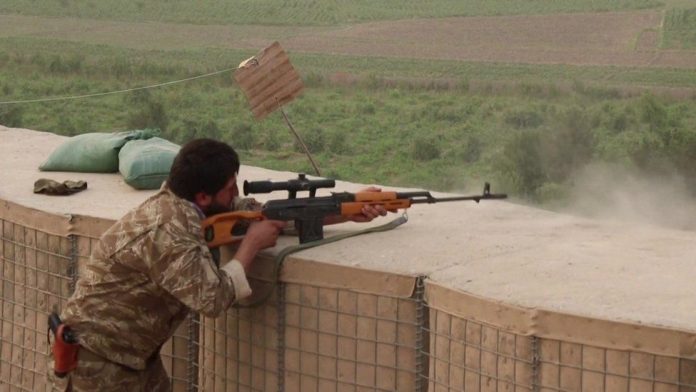They seized control of the key northern city of Kunduz on Sunday, as well as Sar-e-Pul and Taloqan.
It means five regional capitals have fallen to the militants since Friday, with Kunduz being their most important gain this year.
The Taliban said there is no agreement on a ceasefire with the government.
A spokesman for the group warned against further US intervention in Afghanistan while speaking to Al Jazeera TV on Sunday.
Violence has escalated across Afghanistan after US and other international forces began to withdraw their troops from the country, following 20 years of military operations.
Taliban militants have made rapid advances in recent weeks. Having captured large swathes of the countryside, they are now targeting key towns and cities.
The three northern cities fell to Taliban control within hours of each other on Sunday, with one resident in Kunduz describing the situation as “total chaos”.
The Afghan government, meanwhile, said its forces were fighting to retake key installations.
Heavy fighting has also been reported in Herat in the west, and in the southern cities of Kandahar and Lashkar Gah.
Thousands of civilians have been displaced this year. Families, including babies and young children, have been sheltering in a school in the north-eastern city of Asadabad.
“Many bombs were dropped on our village. The Taliban came and destroyed everything. We were helpless and had to leave our houses. Our children and ourselves are sleeping on the ground in dire conditions”, Gul Naaz told AFP.
“There was firing, one of my seven-year-old daughters went out during that fighting and disappeared. I don’t know if she is alive or dead,” another displaced resident said.
The US has intensified its air strikes on Taliban positions, with Afghan military officials saying militants have been killed. But the Taliban say the air strikes hit two hospitals and a school in the city of Lashkar Gah. Neither claim has been independently verified.
The US embassy in Afghanistan condemned the Taliban’s “violent new offensive against Afghan cities”, saying the group’s actions to “forcibly impose its rule are unacceptable”.
“They demonstrate wanton disregard for the welfare and rights of civilians and will worsen this country’s humanitarian crisis,” it said in a statement.
The importance of Kunduz
The seizure of Kunduz is the most significant gain for the Taliban since they launched their offensive in May. The city, home to 270,000 people, is considered a gateway to the country’s mineral-rich northern provinces.
And its location makes it strategically important as there are highways connecting Kunduz to other major cities, including Kabul, and the province shares a border with Tajikistan.
That border is used for the smuggling of Afghan opium and heroin to Central Asia, which then finds its way to Europe. Controlling Kunduz means controlling one of the most important drug smuggling routes in the region.
It also holds symbolic significance for the Taliban because it was a key northern stronghold before 2001. The militants captured the city in 2015 and again in 2016 but have never been able to hold it for long.
Source: BBC
]]>






